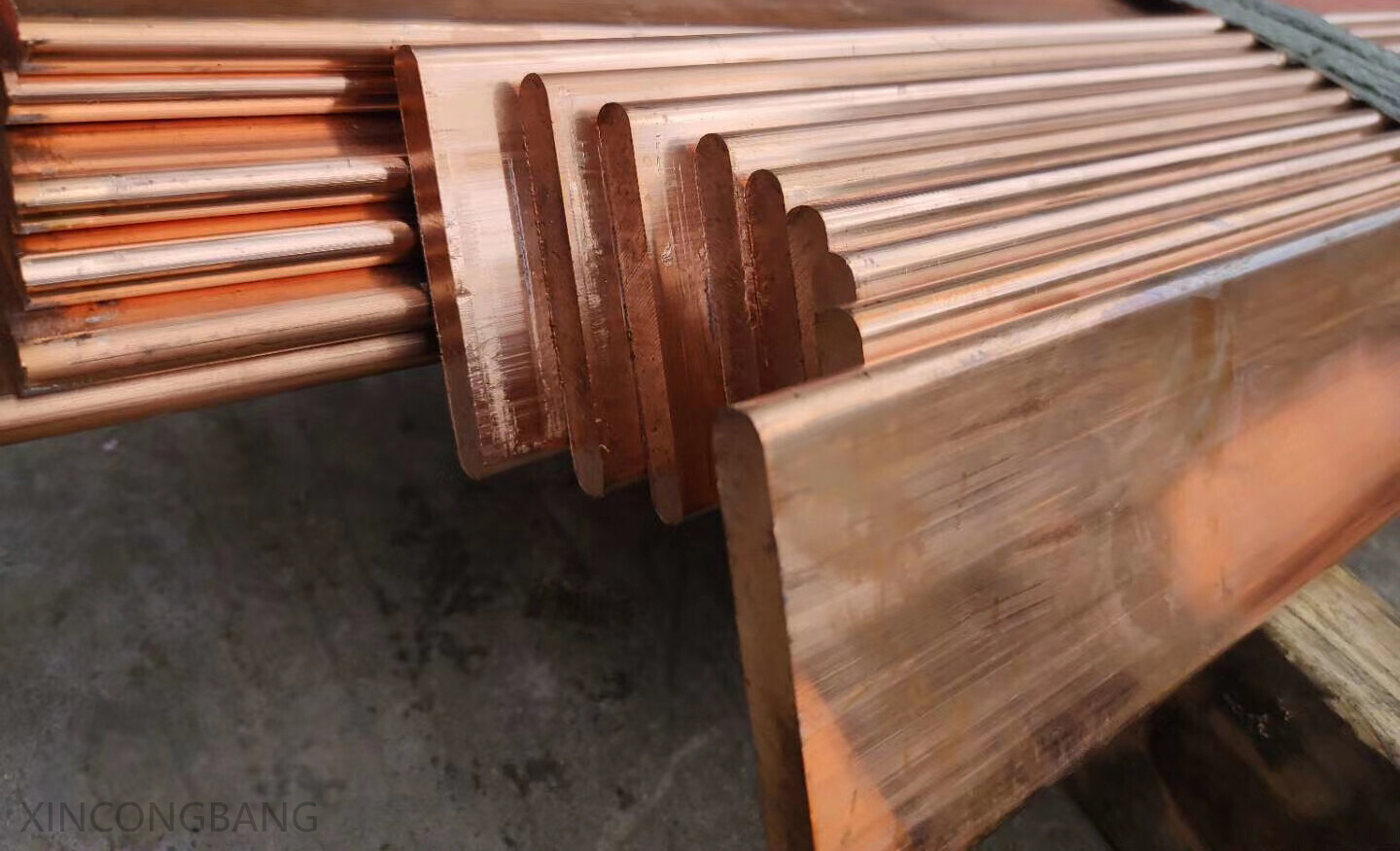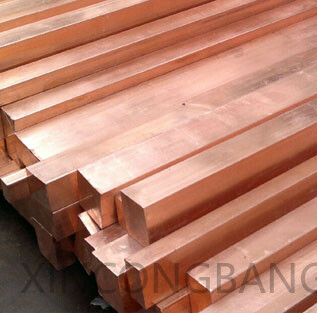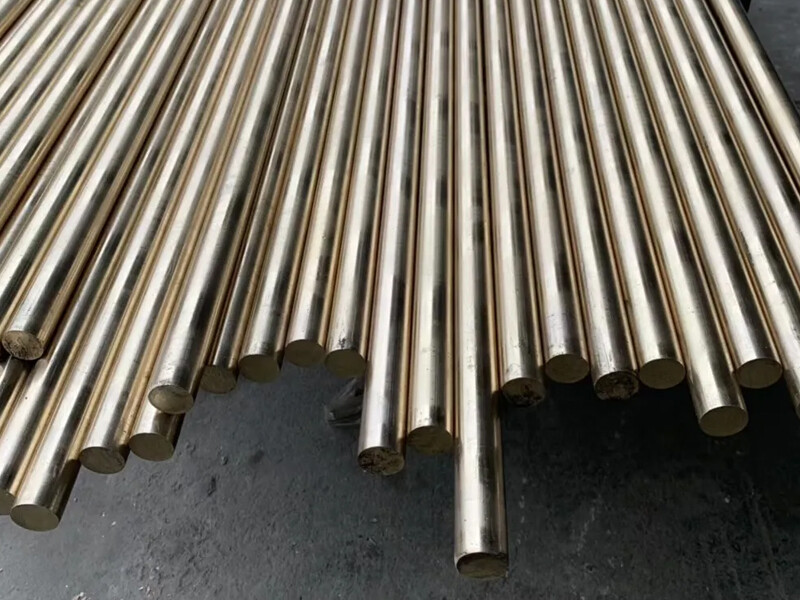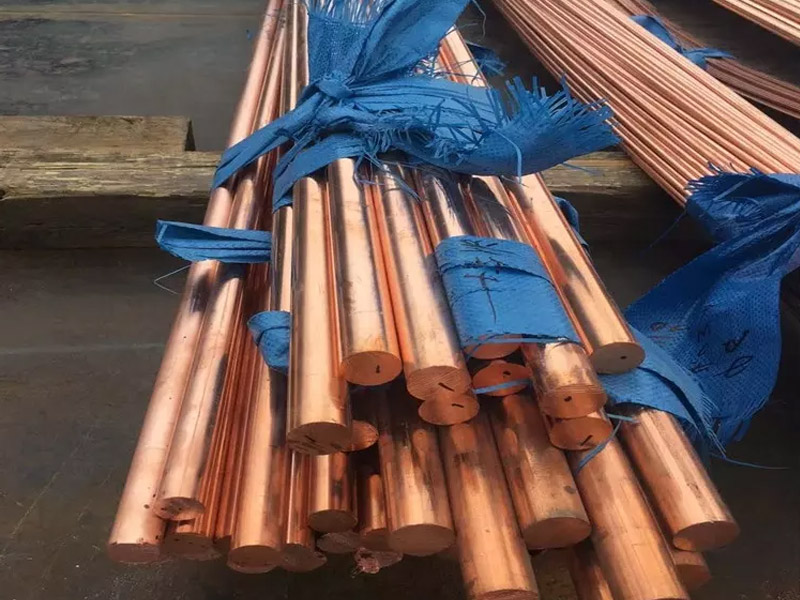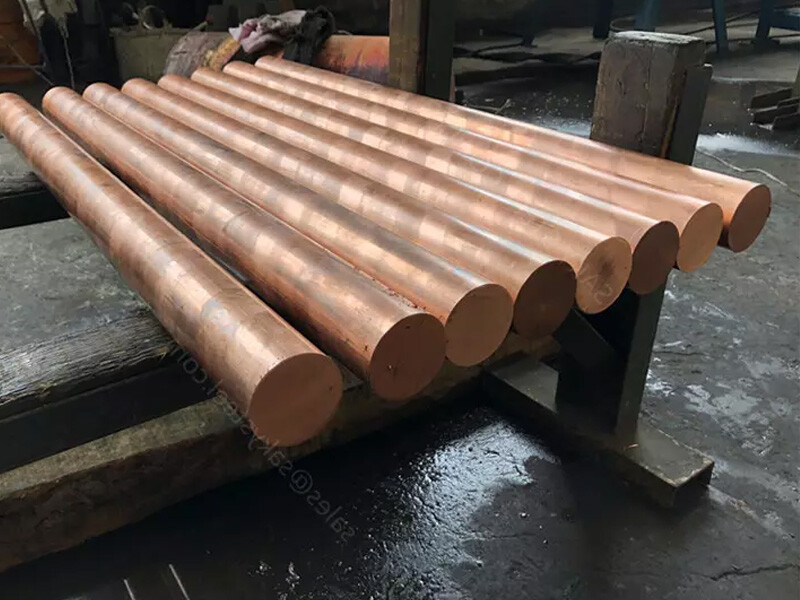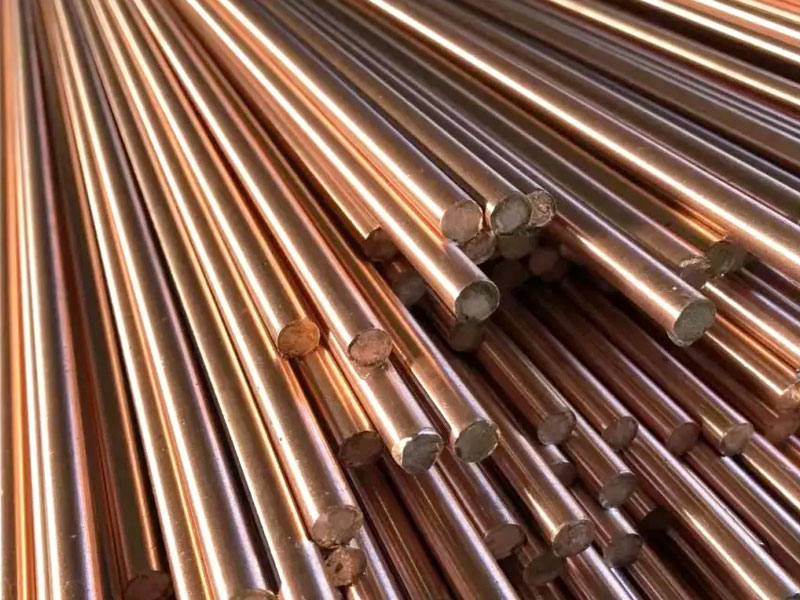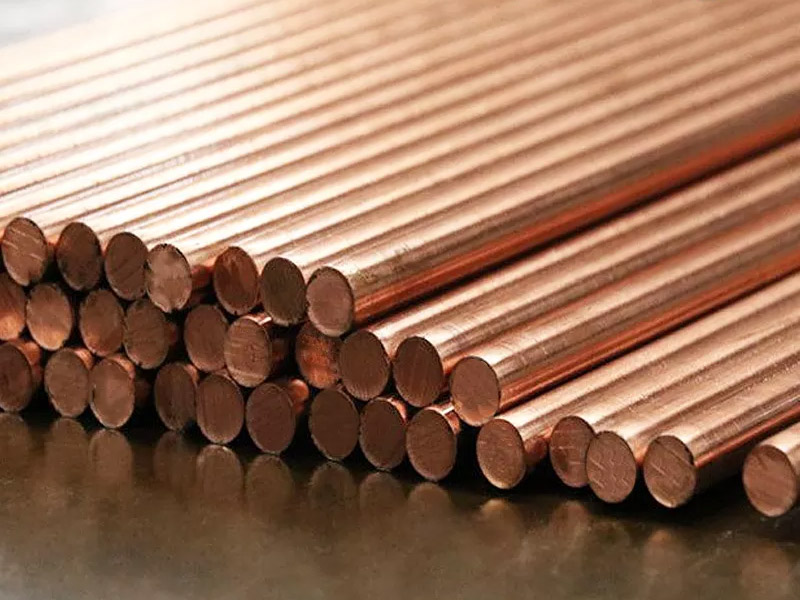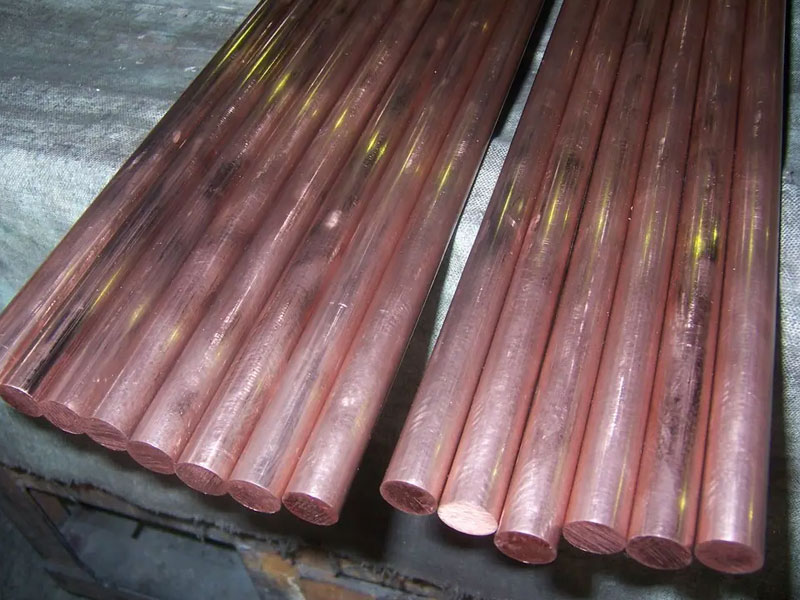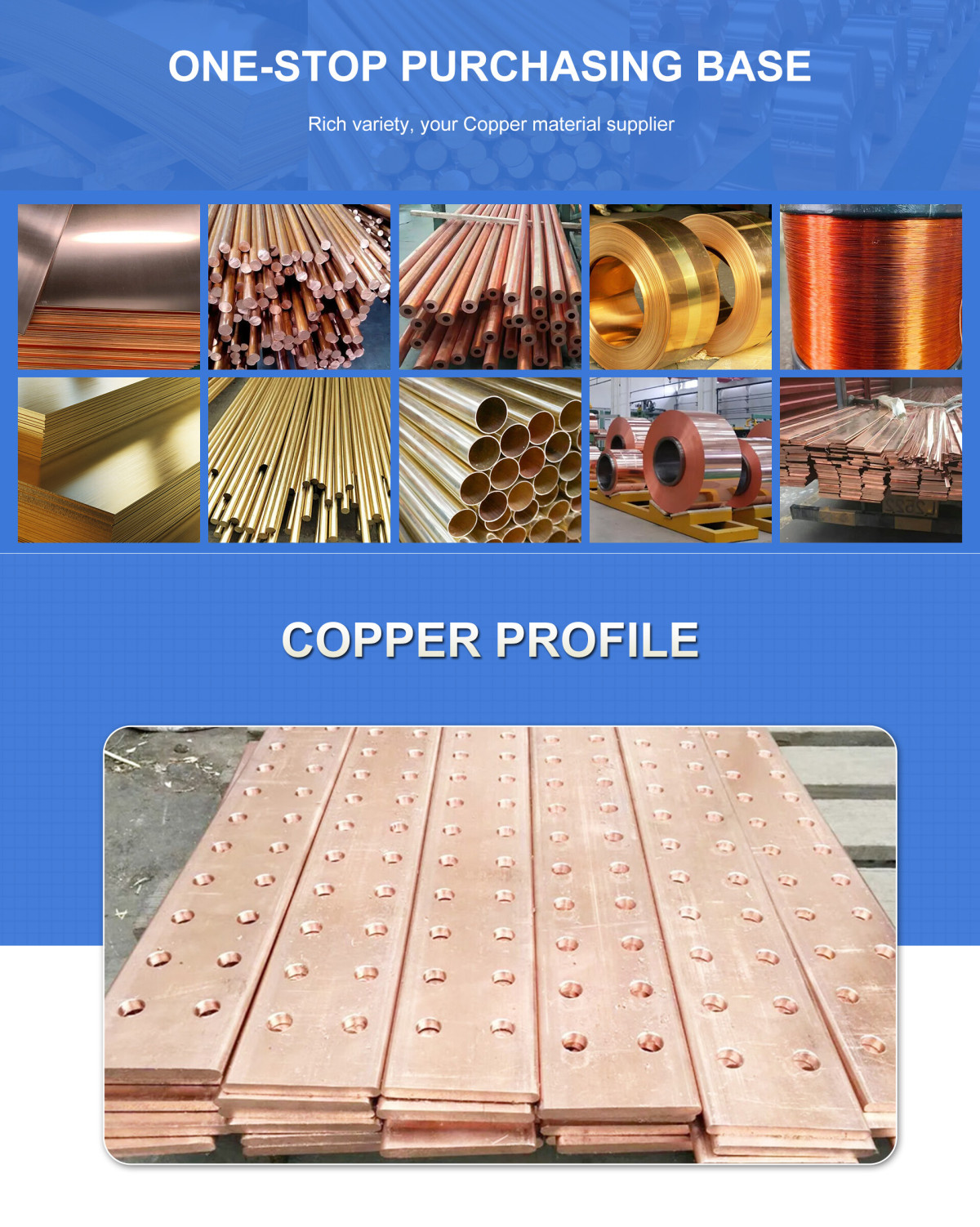
Size range and international standards for C14500 copper rods:
Size range
Diameter range:
Round copper rods range in diameter from 2mm to 800mm, but the specific product lines vary. Most suppliers offer spot specifications ranging from 1.0mm to 100mm.
For example, common spot diameters are 2mm, 3mm, 6mm, 8mm, 12mm, 25mm, 50mm, etc. Some suppliers can provide larger sizes (such as 800mm).
Size ranges for other shapes:
Square rods: 4mm×4mm to 100mm×100mm.
Hexagonal rods: 2mm to 100mm.
Flat rods: thickness 2-100mm, width 10-500mm.
Length and tolerance:
The tolerance of drawn rods is adjusted according to the diameter, for example:
2-3mm diameter: tolerance ±0.03mm, roundness 0.015mm.
20-35mm diameter: tolerance ±0.08mm, roundness 0.04mm.
Curvature requirement: For bars with a diameter of 8-50mm, the maximum curvature per meter is 0.5mm.
International standards
C14500 copper bars meet a number of international standards covering material properties, processing requirements and tolerance specifications:
General standards:
ASTM B301/B301M (American Society for Testing and Materials Standard).
ISO 1637, ISO/R 1336 (International Organization for Standardization Standard).
DIN 17672 (German Standard).
JIS C1450 (Japanese Industrial Standard).
BS 2874 (British Standard).
GB/T 5231-2001 (Chinese National Standard).
Chemical composition (mass percentage)
Copper (Cu): ≥99.90%
Tellurium (Te): 0.40–0.70%
Phosphorus (P): 0.004–0.012%
Mechanical properties
Mechanical properties vary depending on the material state (such as annealed state, cold worked state):
General properties
Tensile strength:
Annealed state: 221–386 MPa
Cold worked state (H04 full hard state): 330–380 MPa
Some literatures mark the minimum value of 38 MPa as a typesetting error, which should actually be 380 MPa.
Yield strength:
Annealed state: 69–352 MPa
Cold worked state (H04): 260–340 MPa
Elongation:
Annealed state: ≥50%
Cold worked state (H04): 8–12%
Hardness:
Brinell hardness: 76 HB (annealed state)
Vickers hardness: 85–100 HV (cold worked state)
Shear strength: 170–190 MPa (H02 semi-hard state to H04 full hard state).
Physical properties
Density: 8.94 g/cm³ (20°C)
Melting point:
Liquidus: 1080°C (1976°F)
Solidus: 1051°C (1924°F)
Electrical conductivity: 93% IACS (annealed), drops to 85% IACS after cold working
Thermal conductivity: 355 W/(m·K) (20°C)
Coefficient of thermal expansion: 17.6×10⁻⁶/K (20–300°C)
Modulus of elasticity: 117 GPa
Key features
Processability:
Machinability rating is 85% (brass is 100% benchmark), far exceeding pure copper (20%).
Suitable for high-speed automatic lathe processing, with excellent cold heading and forging performance.
Electrical/thermal conductivity:
The electrical conductivity is close to pure copper (93% IACS), suitable for electrical connectors, welding electrodes, etc.
Corrosion resistance:
Resistant to hydrogen embrittlement in reducing atmosphere, suitable for furnace brazing.
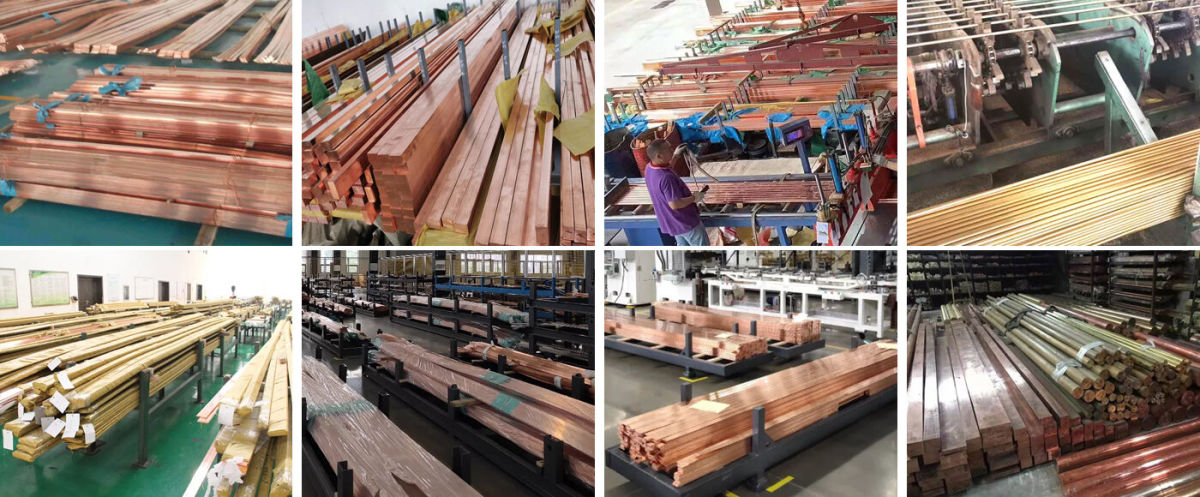
Production process and product advantages of C14500 copper rod (tellurium copper):
Production process
Smelting and casting
Medium frequency furnace or industrial frequency furnace is used for smelting to ensure uniform composition of copper liquid, and the addition ratio of tellurium (0.4-0.7%) and phosphorus (0.004-0.012%) is strictly controlled to optimize performance.
Semi-continuous casting process: Use copper inner sleeve crystallizer, control cooling water pressure (0.22-0.25 MPa) and casting speed (110-140 mm/min), and obtain ingots with excellent surface quality and stable composition.
Hot working and cold working
Extrusion: Hot extrusion is performed through a large-tonnage reverse extruder (such as 3250T) to improve material density and uniformity of organization.
Stretching and drawing: The coil or straight drawing process is used to process into bars, wires and other profiles. The cold working rate affects the final performance. Increasing the processing rate can increase the tensile strength but reduce the elongation.
Annealing: Treatment in an annealing furnace to eliminate internal stress and optimize the softening properties of the material.
Inspection and Forming
Ultrasonic flaw detection detects internal defects, and packaging is performed after cutting to ensure the quality of the finished product.
Product Advantages
High electrical and thermal conductivity
The electrical conductivity is as high as 93-95% IACS (International Annealed Copper Standard), and some high-quality materials can reach more than 95%, which is suitable for high current transmission scenarios (such as new energy vehicle charging guns and electrical connectors).
The thermal conductivity is 355 W/(m·K), which is suitable for components that require rapid heat dissipation, such as radiators and plasma cutting nozzles.
Excellent cutting performance
Contains trace tellurium elements to form an easy-to-break chip structure, and the cutting efficiency is 1-2 times that of ordinary copper, close to 85% of lead brass C3600, and is not easy to stick to the knife, reducing tool wear.
Excellent mechanical properties
Tensile strength 350-380 MPa, yield strength 200-370 MPa, elongation 9-12%, with high strength and good plasticity, suitable for precision parts (such as gears, bearings) and complex structural parts processing.
Corrosion resistance and arc resistance
It has strong resistance to acidic environment, salt spray and electric ablation, suitable for marine equipment, industrial switches and welding electrodes.
Anti-fusion welding and anti-arc properties can reduce material burnout and extend component life.
Wide processing adaptability
Supports a variety of hot and cold processing methods such as forging, casting, extrusion, stamping, etc., and can be made into rods, plates, tubes, wires and other profiles to meet diverse needs.
Environmental protection and certification
It complies with international standards such as ASTM B301, ISO 1637, GB/T 5231, and has passed SGS and ISO certification. It is non-toxic and environmentally friendly and suitable for high-end electronics and food contact fields (such as plumbing pipes).
Application fields
Electronic and electrical appliances: aviation connectors, PCB conductive channels, semiconductor welding heads.
Automobile manufacturing: high current connectors for new energy vehicles, starter components.
Machining: precision gears, welding nozzles, wear-resistant bearings.
Energy and welding: plasma cutting machine nozzles, solar power station connectors.
Q1:Do you provide samples? Is it free or extra?
A1:Yes, we can provide samples free of charge and the customer will pay the freight.
Q2:What if I don't have export experience ?
A2:We have reliable forwarder agent which can ship items to you by sea/air/Express to your doorstep. Any way, we will help you choose the most suitable shipping service.
Q3:How long is your lead time?
A3:If it is in stock, it is usually 5-10 days. Or, if there is no inventory, 15 days, depending on the quantity.
Q4:What are your terms of payment?
A4:30% T/T deposit in advance, 70% T/T balance within 5 days after B/L copy, 100%.Irrevocable L/C at sight, 100% Irrevocable L/C after receive B/L 30-120 days, O/A.
Q5:How is your technical support?
A5:We provide lifetime online support through Whatsapp/ Skype/ Wechat/ Email. Any problem after delivery, we will offer you call anytime.
Welcome To Your Inquiry
What can we help you?
RELATED PRODUCTS




